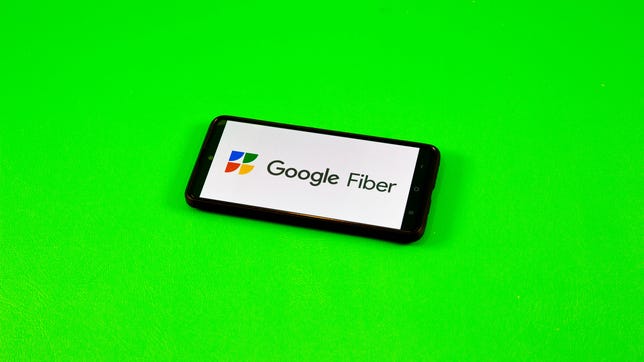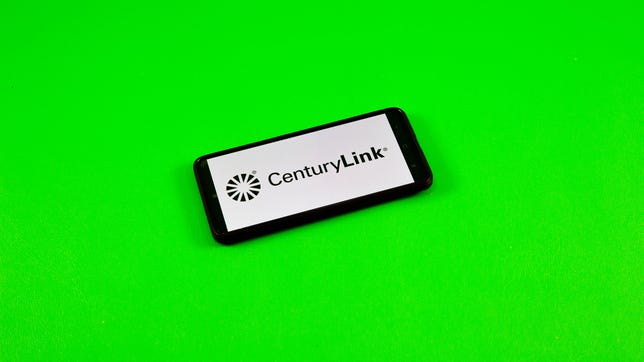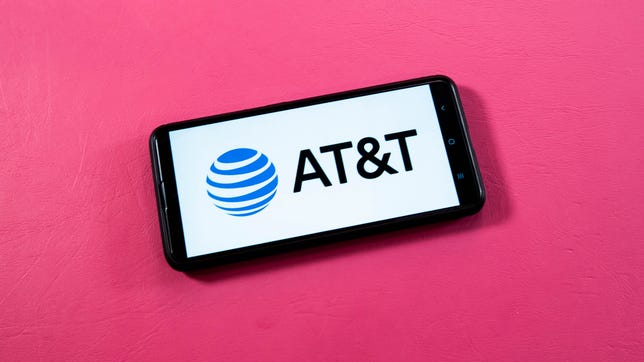What’s the fastest internet you can get? That would be gigabit service, which promises internet download speeds of around 1,000Mbps or higher. Gigabit service is available from just about every cable and fiber internet provider, and the prices have stayed low due to the amount of competition. That means you have a wide selection to choose from, which can make the decision of which provider to go with more difficult. That’s why we’re there.
All high-speed internet providers and plans are not the same even if their max speeds may look like it. While max download speeds are essentially the same across gig plans, upload speeds will vary by connection type. Additionally, pricing, service terms, equipment fees and more can separate the best high-speed ISPs from the rest. Here are my picks of the best high-speed internet providers.
Read more: Best DSL Internet Providers for 2022
Best high-speed internet service providers
Sarah Tew/CNET
Xfinity has long led the way in fastest residential internet speeds with its Gigabit Pro plan, which advertises max download and upload speeds up to 6,000Mbps. Availability is limited, but with a monthly price of $300 and a two-year contract, chances are you’ll want to pass on the plan even if it is available.
Much more available, and reasonable, is the Xfinity Gigabit plan. It’s offered in most Xfinity markets and comes with a more industry-acceptable price of around $80 a month. Though still higher-priced than some gigabit plans, Xfinity Gigabit is cheaper than equivalent plans from many competing cable providers and comes with max download speeds up to 1,200Mbps compared with the 940Mbps or 1,000Mbps you’ll find from most high-speed providers.
Keep in mind that high-speed internet is only as good as the network that carries it. A fiber connection to the home network can deliver symmetrical or near-symmetrical download and upload speeds, whereas a cable or cable/fiber hybrid network often cannot. As a result, max upload speeds for Xfinity Gigabit are only 35Mbps, a stark contrast to the plan’s max download speeds.
Xfinity Internet
You’re receiving price alerts for Xfinity Internet
Sarah Tew/CNET
Google Fiber was one of the first major fiber providers to offer a 2-gigabit plan, though other providers are now introducing multi-gig internet plans of their own. Even with the multi-gig newcomers, Google Fiber’s 2 Gig plan is the best-priced one on the market, starting at just $100 with no added equipment fees.
If 2 gigabits is more speed than your home needs, or $100 per month is more than you’d like to pay, consider Google Fiber’s 1 Gig plan. Starting at $70 per month, the plan offers max upload and download speeds of 1Gbps. You really can’t go wrong with either, but if you don’t mind the higher monthly price, 2 Gig is the better deal with a cost per Mbps of just 5 cents.
Both Google Fiber gig plans are contract-free and come with unlimited data and Wi-Fi equipment at no additional cost. Considering the fast speeds, competitive pricing and favorable service terms, the service is understandably in high demand. Google Fiber recently announced plans to resume expansion in current locations and new ones, including West Des Moines, Iowa.
Sarah Tew/CNET
CenturyLink’s fiber service is rebranding to Quantum Fiber, but so far its service, including the low-priced gigabit plan, is the same. Quantum Fiber’s gig service, which comes with symmetrical download and upload speeds of up to 940Mbps, starts at just $65 per month.
The base price isn’t the absolute lowest you may find, but considering Quantum Fiber throws in the equipment at no extra cost, plus unlimited data and no contract requirements, the plan has one of, if not the, best all-in prices for gigabit speed.
CenturyLink
You’re receiving price alerts for CenturyLink
Sarah Tew/CNET
AT&T has the lowest cost per Mbps for its top multi-gig service, Internet 5000, at just under 4 cents per Mbps. That’s still a fairly hefty fee of $180 a month, but since AT&T uses a 100% fiber connection, that service is capable of delivering max download and upload speeds of up to 5,000Mbps. True, most households don’t need that much speed, but the overall value of the plan is cheaper than you’ll find among all of the fastest home internet providers.
AT&T’s other fiber plans are still an excellent value, especially considering the provider’s recent speed increases. All plans give unlimited data, have no equipment fees and don’t require a contract.
Along with low pricing, AT&T Fiber also boasts exceptional availability. AT&T Fiber is available to roughly 16 million people across 21 states, according to the FCC. Customers across the US appear to be pleased with their service, as AT&T earned J.D. Power’s top spot for ISP customer satisfaction in the North/Central and South regions in 2021.
You’re receiving price alerts for AT&T Home Internet
Sarah Tew/CNET
The Verizon Fios equipment fee, if you want a Whole-Home Wi-Fi package, is a tad higher than those of other high-speed internet providers at $10 a month, but if you sign up for the Fios Gigabit Connection you get your equipment included at no extra cost. Pricing for the Verizon Fios Gigabit Connection is $90 a month (download speeds up to 940Mbps, upload up to 880Mbps), but with no additional equipment fees, data caps or contract requirements, Verizon’s all-in gigabit pricing is on par with or lower than most.
Equipment isn’t the only freebie that comes with the Fios Gigabit Connection. Verizon is known to throw in extra promotional offers, such as gift cards or free service subscriptions for new customers.
Fast internet speeds and freebies have helped Verizon rank as a top-tier choice for customer satisfaction. The provider reclaimed the top spot for customer satisfaction in the latest American Customer Satisfaction Index report, which gave Verizon Fios an industry-leading score of 72 out of 100.
Verizon Fios
You’re receiving price alerts for Verizon Fios
Sarah Tew/CNET
Ziply Fiber, a regional provider serving parts of Idaho, Montana, Oregon and Washington, recently extended 2- and 5-gig service to 170,000 households, many of which are located in suburban or rural areas. The new high-speed plans make Ziply Fiber not only the fastest provider in the Northwest, but also the fastest rural provider nationwide. In addition to the 170,000 homes now eligible for multi-gig service, Ziply expects to offer the plans throughout all current and new fiber markets by the end of 2022.
Ziply’s 2-gig plan starts at $120 per month, while the 5-gig service is $300. That sounds a little high but, for comparison, Google Fiber’s 2-gig plan is $100 per month and Xfinity’s multi-gig plan, with max speeds of 6Gbps, is also $300 per month. Still, if over $100 is more than you’d like to pay for home internet service, Ziply Fiber also offers three lower-tiered plans, including a single-gig service starting at $60 per month.
Best high-speed internet provider honorable mentions
These providers, along with regional providers that are too many to list here, also offer high-speed internet plans including gigabit service in select areas. In addition to the best high-speed internet providers listed above, these are certainly worth a look if available in your area.
- Cox Communications — Cox Gigablast offers download speeds up to 940Mbps and upload speeds up to 35Mbps starting at $100 per month. Select locations will have access to Cox’s fiber network, which can deliver much faster uploads, though the plan pricing and top download speed remain the same.
- Frontier FiberOptic — Frontier’s gigabit plan offers max download speeds of 940Mbps and upload speeds of 880Mbps for a monthly price of $80 that includes unlimited data and your equipment rental. Frontier also recently introduced a 2-gigabit plan across its entire fiber footprint. The plan comes with max download and upload speeds of 2,000Mbps starting at $150 per month.
- Kinetic by Windstream — Kinetic is one of the fastest rural internet options with gig speeds available in many areas potentially underserved by cable or other fiber providers. Kinetic Gig, with download and upload speeds up to 940Mbps, is available in select areas starting at $67 per month plus $10 for equipment.
- Mediacom — Mediacom’s 1 Gig plan features download speeds up to 1,000Mbps and upload speeds up to 50Mbps with a monthly data cap of 6,000GB starting at $80 per month. Watch out for the price increase, though. After 12 months, the monthly price jumps from $80 to $140.
- Spectrum — As the second-largest cable internet provider behind only Xfinity, Spectrum is one of the leading providers of high-speed internet. Spectrum’s gigabit speed plan is available in nearly all service areas and comes with download speeds up to 940Mbps and upload speeds up to 35Mbps starting at $90 per month.

You’re likely to find the fastest speeds possible from a fiber provider, but cable internet providers offer gigabit download speeds, as well.
Oed/ullstein bild via Getty Images
Fastest internet service provider recap
You likely noticed a trend in our list of the best gigabit providers. Fiber-optic providers will often be your best bet for fast home internet, even though Xfinity — traditionally a cable provider — boasts the fastest single gigabit plan. Other cable internet providers such as Spectrum, Cox and Mediacom offer decent gigabit plans, but watch out for comparatively low upload speeds.
When shopping for any internet service, be sure to compare the average internet speed, pricing and features of all providers in your area to make sure you’re getting the best high-speed plan for your home.
Best high-speed internet FAQs
What is considered fast internet?
Speeds of 100Mbps and higher will handle most online activities such as streaming in HD, gaming online and working/learning remotely on multiple devices. That’s actual, tested internet speeds of 100Mbps or higher, not advertised plan speeds of 100Mbps. If your internet plan includes “max speeds” of 100Mbps, your actual speeds are likely to be much lower if you use a Wi-Fi connection and connect multiple devices. For the fastest home internet connection, consider a plan that advertises gigabit speeds, up to 940Mbps or higher.
Do I really need gigabit speeds?
In all honesty, gigabit speeds are going to be overkill for the average home, at least for now. Larger households with numerous connected devices can likely get by with 300Mbps to 500Mbps no problem. For smaller households, 100Mbps to 200Mbps may be suitable, but I wouldn’t go lower than 100Mbps if you want a “fast” connection.
That said, gigabit internet has its advantages. The biggest one is the added speed boost will compensate for speed degradation when using a Wi-Fi connection. Using Wi-Fi will often result in actual speeds half of your plan’s advertised speeds, or lower. As you move farther away from the router, actual speeds can drop even more. The best routers and a good mesh Wi-Fi system will help compensate for the speed loss, but gigabit service is your best bet for getting the fastest speeds over Wi-Fi.
Another advantage to gigabit service is value. Though gigabit plans are going to be a provider’s highest-priced plan more often than not, they usually offer the lowest cost per Mbps. For example, AT&T Internet 1000 starts at $80 a month, which is $25 more than the provider’s cheapest internet plan, AT&T Fiber 300, but when you consider cost per Mbps — that is, what you get for what you’re paying — AT&T Fiber 1000 is the better deal. AT&T Fiber 1000 has an estimated cost per Mbps of around 9 cents while AT&T Fiber 300 has a cost per Mbps of just over 18 cents.
What is the fastest internet provider?
Xfinity holds the title for fastest national ISP with its Gigabit Pro service featuring speeds up to 6,000Mbps in select areas. But other providers, including AT&T Fiber, Frontier, Verizon Fios and Ziply Fiber, have introduced multigigabit plans of their own. Currently, AT&T Fiber and Ziply Fiber are the next fastest of all major internet providers, with speeds up to 5Gbps available in select areas. Lastly, according to the speed-testing company Ookla, Cox was the fastest fixed broadband provider for average download speeds.
Is home internet service getting faster?
In many locations, yes. Most cable and fiber-optic internet providers already have a gigabit plan, but recent speed increases from Google Fiber and Xfinity may be an indicator of faster speeds to come. Additionally, Wi-Fi connections are getting faster as providers are adopting and implementing Wi-Fi 6 technology. Some providers, including Google Fiber, offer a Wi-Fi 6 router with select plans, but if you don’t want to wait on one from your provider, check out these Wi-Fi 6 routers that are available now.
More internet advice
Best High-Speed Internet Service Providers – CNET
Source: Media Star Philippines









0 Comments